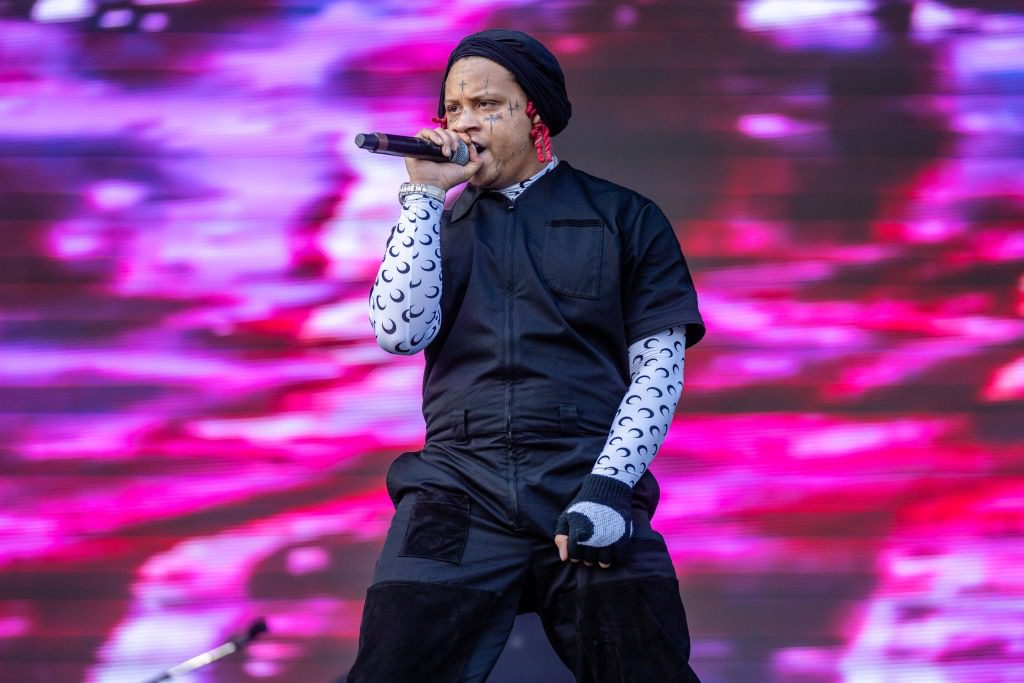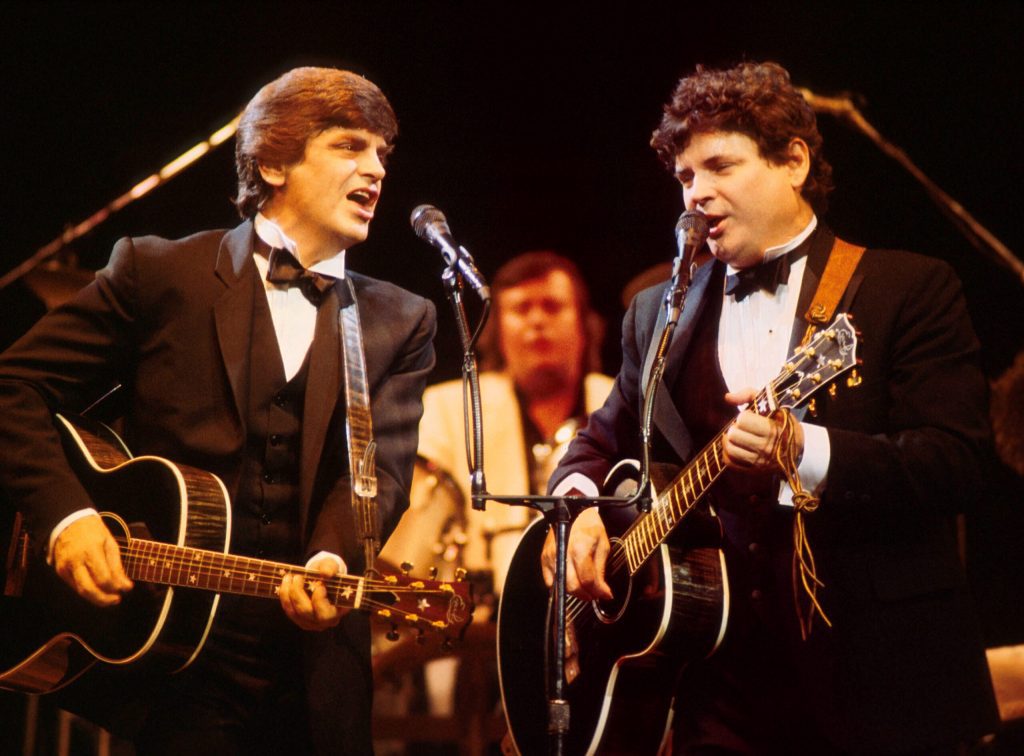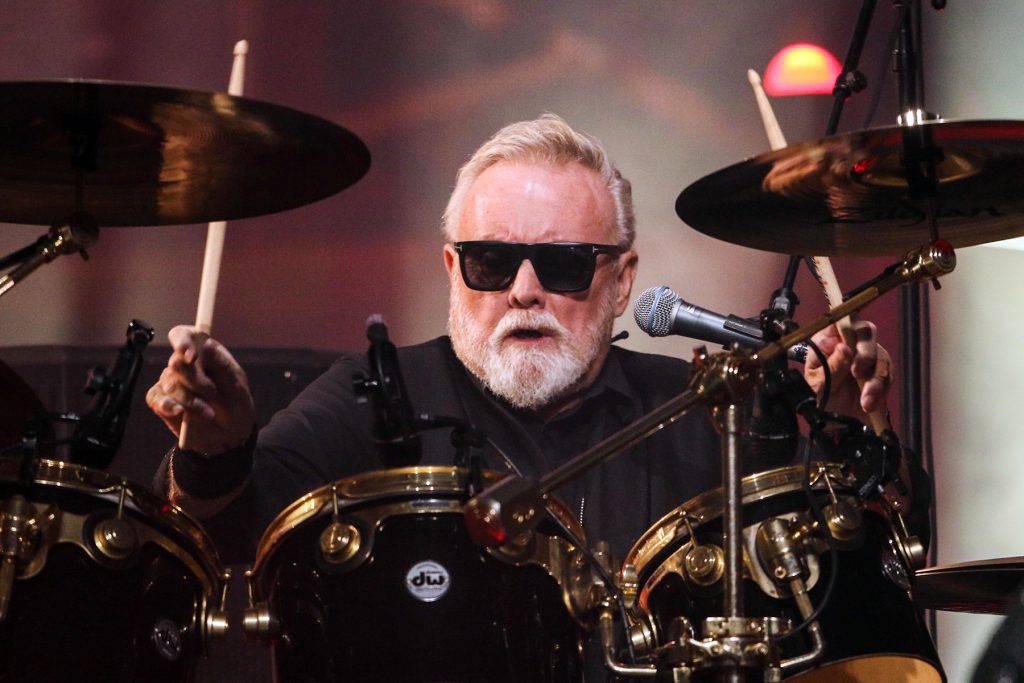
Everly Brothers’ Don Everly, Early Rock Pioneer, Dead at 84
Don Everly, half of one of rock’s earliest and most influential harmony groups, the Everly Brothers, died Saturday in his Nashville home at the age of 84. A rep for the singer confirmed his death to the Los Angeles Times. A cause of death was not immediately known.
“Don lived by what he felt in his heart,” Everly’s family said in a statement to the Times. “Don expressed his appreciation for the ability to live his dreams … with his soulmate and wife, Adela, and sharing the music that made him an Everly Brother.”
The Everly Brothers: 12 Essential Tracks
Starting with 1957’s “Bye Bye Love” and continuing for five more years, the Everlys ruled the pop and country charts with 15 Top 10 hits, including “Wake Up Little Susie,” “All I Have to Do Is Dream,” and “When Will I Be Loved.” Although many of their songs were written by outside writers, Don, the more prolific of the duo, penned three of their finest songs: the rollicking “Cathy’s Clown,” “(‘Til) I Kissed You” and the forlorn “So Sad (to Watch Good Love Go Bad).” In most cases, Don sang lead, with Phil’s wispier, more velvety harmonies wrapping around his brother’s.
The resulting blend, steeped in country music, Appalachia, and early rock & roll, impacted on nearly every harmony-based band that followed, including the Beatles, the Mamas and the Papas, the Hollies and Simon & Garfunkel. But the Everlys’ influenced never waned. The brothers were among the first acts inducted into the Rock & Roll Hall of Fame in 1986. In 2013, just a few months before Phil Everly’s death in January 2014 of chronic obstructive pulmonary disease, Billie Joe Armstrong and Norah Jones released a collection of Everly covers in honor of the brothers.
blogherads.adq.push(function () {
blogherads
.defineSlot( ‘medrec’, ‘gpt-dsk-tab-article-inbody1-uid0’ )
.setTargeting( ‘pos’, [“mid-article”,”mid”,”in-article1″,”mid-article1″] )
.setSubAdUnitPath(“music//article//inbody1”)
.addSize([[300,250],[620,350],[2,2],[3,3],[2,4],[4,2]])
;
});
Born February 1st, 1937, in Kentucky, Isaac Donald Everly — known as Donald to family and friends — was steeped in music from the start. His father Ike was a coal miner who also happened to be a gifted guitarist. The family relocated to Chicago when Don was two; his brother Phillip was born in 1939. Their father played guitar in bars and later hosted a radio show in Iowa. “When he grows up, Donald, 8, wants to be an entertainer like his dad so they can form a vocal and musical team,” read a program at the Iowa radio station. Known as “Little Donnie,” Everly had his own segment on that show while he was in grade school; during an Everly family program, little brother Phil began joining in.
The brothers and their mother relocated to Nashville in the mid-1950s (Ike was forced to work farther away for a while). Still in high school, Don, ambitious from the start, began writing songs and had them covered by the likes of country star Kitty Wells. “I was never really good at school,” he told IndieLand in 1986. “And here I had made a thousand-some dollars in royalties from my songs.”
Beginning with “Bye Bye Love,” a song rejected by 30 other acts before the brothers cut it in 1957, the Everlys’ string of hits made them early rock stars and heartthrobs. Musically, their blend of Nashville and pop wasn’t considered unusual at the time: As Don told IndieLand, “There were no barriers between country and rock, you know? Nobody thought about it.” As seemingly wholesome as the brothers were, they still felt the dismissive attitude toward rock & roll in its formative years. “When Phil and I started out, everybody hated rock & roll,” Don said. “The record companies didn’t like it at all — felt it was an unnecessary evil. Interviewers were always older than us, and they let you know they didn’t like your music, they were just doing the interview because it was their job.”
The Everlys wracked up the hits and toured with Chuck Berry, Buddy Holly and many of rock’s other early icons. But trouble was ahead: They moved to Hollywood in an ill-fated attempt to start a movie career, and after 1962’s presciently titled “That’s Old Fashioned (That’s the Way Love Should Be),” they never scored another top 10 hit. By then, they’d left their original label, Cadence, and signed with Warner Brothers; as a result, they no longer had access to the songwriters who gave them some of their earliest hits.
Don himself fell on hard times soon into the Sixties. Due to the rigors of the road, he began using then-legal Ritalin. “People didn’t understand drugs that well then,” he told IndieLand. “They didn’t know what they were messing with. It was a real disaster for a lot of people, and it was a disaster for me. It just got me strung out. I got so far out there. I didn’t know what I wads doing.”
blogherads.adq.push(function () {
blogherads
.defineSlot( ‘medrec’, ‘gpt-dsk-tab-article-inbody2-uid1’ )
.setTargeting( ‘pos’, [“mid-article2″,”mid”,”in-article2″,”mid-article”] )
.setSubAdUnitPath(“music//article//inbody2”)
.addSize([[300,250],[300,251],[620,350],[2,4],[4,2],[3,3]])
.setLazyLoadMultiplier(2)
;
});
Everly recovered, divorced and remarried. He and his brother signed up for the Marine Corps reserves to avoid being drafted, but once they were out, Don began using barbiturates. In London in 1962, he tried to take his own life with two different attempted pill overdoses and was committed to a hospital, where he underwent shock therapy. “It was pretty primitive treatment at the time — once they gave it to you, you couldn’t remember how long you’d been there,” Don said. “It knocked me back for a long time. I thought I’d never write again.”
Although many of the British Invasion and American bands of the Sixties were huge admirers of the Everlys, the brothers struggled musically during that decade. Don loved hanging out with the likes of Jimi Hendrix and Joni Mitchell, but the Everlys were considered relics from rock’s past. (One high point was the 1968 country-rock album Roots.) Finally, in 1973, they broke up onstage; Phil smashed his guitar and stormed off, and a drunken Don told the crowd, “The Everly Brothers died 10 years ago.” (He later came to regret that comment.) “We had been working our buns off for years,” he later told RS. “We were just strapped together like a team of horses.”
The brothers didn’t speak for a decade and went on to record less well-received solo albums. But in 1983, at Don’s instigation, the brothers reunited for a rapturously received concert at London’s Royal Albert Hall, which resulted in three more studio albums in the Eighties. (The first, 1984’s EB84, included three fine originals by Don: “Asleep,” “You Make It Seem So Easy,” and “Following the Sun.”) The resulting albums weren’t as commercially successful as the brothers’ earlier work, but the brothers continued to tour sporadically. Their last high-profile gig was a guest appearance on Simon & Garfunkel’s 2003 reunion tour. Of the brothers’ harmonies during those shows, Paul Simon would later note, “After all these years, it was still that sound I fell in love with as a kid. It was still perfect.”
Given the differences in their lifestyles, it was ironic that Don would outlive his younger brother. While Phil was known as the low-key homebody, Don loved the rock & roll lifestyle. In 1986, RS described him as “a lover of good food, fine Beaujolais and beautiful women.” He later admitted to writing “(‘Til) I Kissed You” about an obsession he had with a woman he met on tour in Australia when he was married.
The brothers still had their differences over the years. They lived in separate cities (for a while, each went back and forth between Nashville and Los Angeles) and would record their vocals separately for their 1980s reunion albums. At the time of Phil’s death, they hadn’t sung together onstage in almost a decade. Don always acknowledged those differences and disagreements — but also the bond they had when they shared a microphone. “We give each other a lot of space,” he said in 1999. “We say hello, we sometimes have a meal together. … Everything is different about us, except when we sing together.”
The Everly Brothers: The IndieLand Interview




